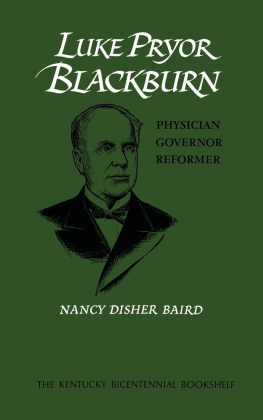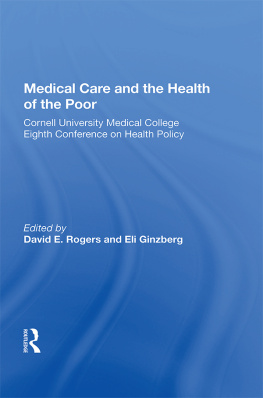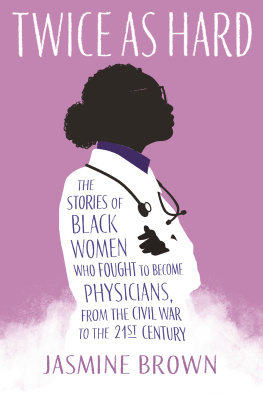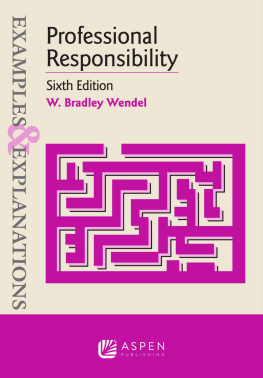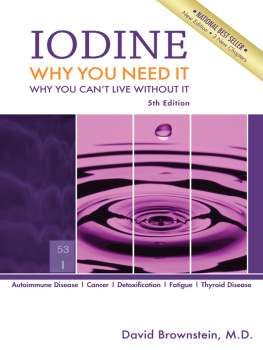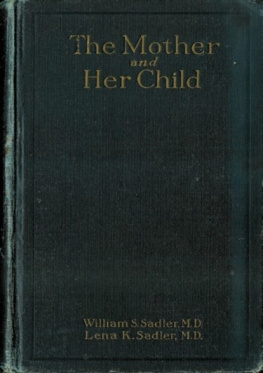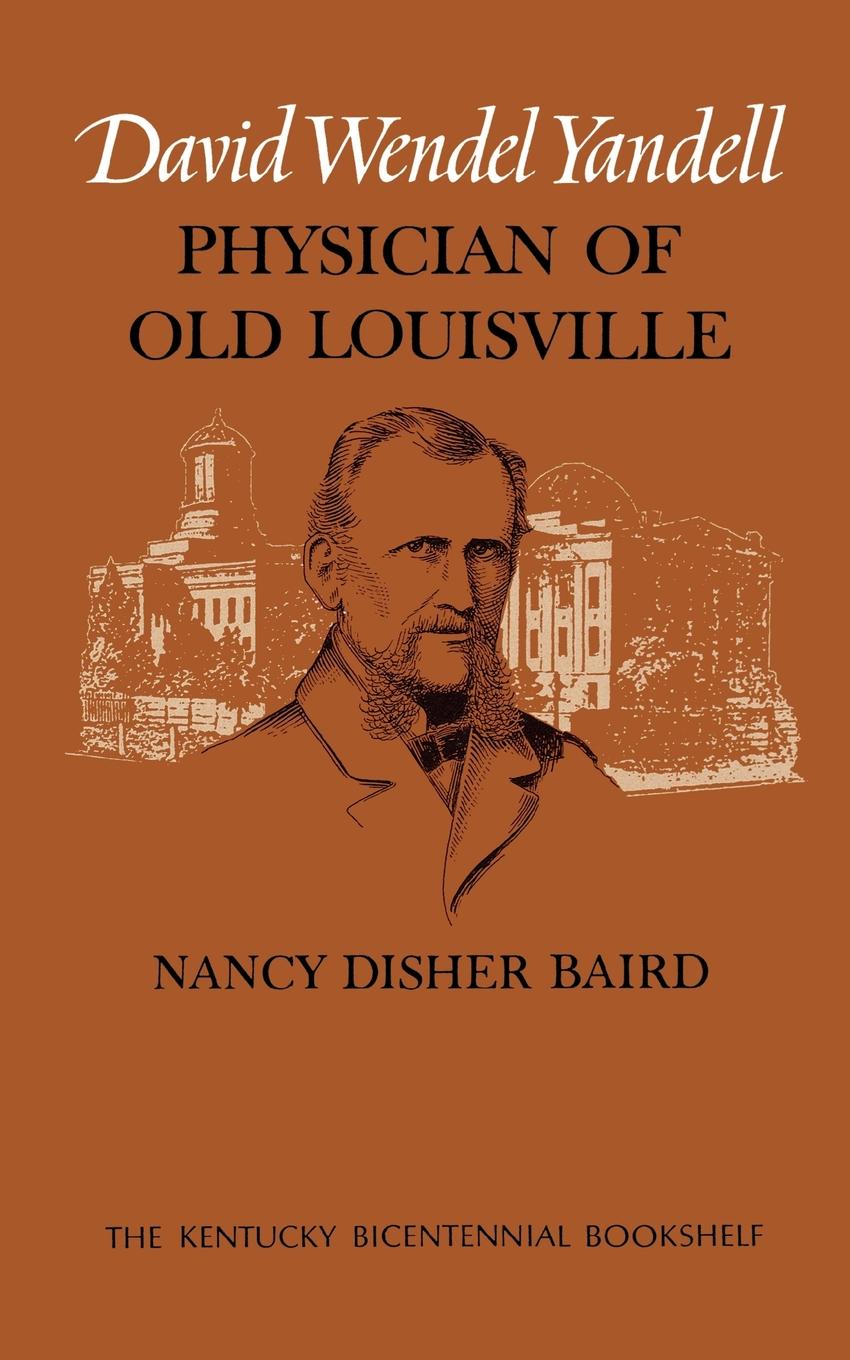The Kentucky Bicentennial Bookshelf Sponsored by
KENTUCKY HISTORICAL EVENTS CELEBRATION COMMISSION
KENTUCKY FEDERATION OF WOMENS CLUBS
and Contributing Sponsors
AMERICAN FEDERAL SAVINGS & LOAN ASSOCIATION
ARMCO STEEL CORPORATION, ASHLAND WORKS
A. ARNOLD & SON TRANSFER & STORAGE CO., INC. / ASHLAND OIL, INC.
BAILEY MINING COMPANY, BYPRO, KENTUCKY / BEGLEY DRUG COMPANY
J. WINSTON COLEMAN, JR. / CONVENIENT INDUSTRIES OF AMERICA, INC.
IN MEMORY OF MR. AND MRS. J. SHERMAN COOPER BY THEIR CHILDREN
CORNING GLASS WORKS FOUNDATION / MRS. CLORA CORRELL
THE COURIER-JOURNAL AND THE LOUISVILLE TIMES
COVINGTON TRUST & BANKING COMPANY
MR. AND MRS. GEORGE P. CROUNSE / GEORGE E. EVANS, JR.
FARMERS BANK & CAPITAL TRUST COMPANY / FISHER-PRICE TOYS, MURRAY
MARY PAULINE FOX, M.D., IN HONOR OF CHLOE GIFFORD
MARY A. HALL, M.D., IN HONOR OF PAT LEE,
JANICE HALL & MARY ANN FAULKNER
OSCAR HORNSBY INC. / OFFICE PRODUCTS DIVISION IBM CORPORATION
JERRYS RESTAURANTS / ROBERT B. JEWELL
LEE S. JONES / KENTUCKIANA GIRL SCOUT COUNCIL
KENTUCKY BANKERS ASSOCIATION / KENTUCKY COAL ASSOCIATION, INC.
THE KENTUCKY JOCKEY CLUB, INC. / THE LEXINGTON WOMANS CLUB
LINCOLN INCOME LIFE INSURANCE COMPANY
LORILLARD A DIVISION OF LOEWS THEATRES, INC.
METROPOLITAN WOMANS CLUB OF LEXINGTON / BETTY HAGGIN MOLLOY
MUTUAL FEDERAL SAVINGS & LOAN ASSOCIATION
NATIONAL INDUSTRIES, INC. / RAND MCNALLY & COMPANY
PHILIP MORRIS, INCORPORATED / MRS. VICTOR SAMS
SHELL OIL COMPANY, LOUISVILLE
SOUTH CENTRAL BELL TELEPHONE COMPANY
SOUTHERN BELLE DAIRY CO. INC.
STANDARD OIL COMPANY (KENTUCKY)
STANDARD PRINTING CO., H. M. KESSLER, PRESIDENT
STATE BANK & TRUST COMPANY, RICHMOND
THOMAS INDUSTRIES INC. / TIP TOP COAL CO., INC.
MARY L. WISS, M.D. / YOUNGER WOMANS CLUB OF ST. MATTHEWS
David Wendel
Yandell
Physician of Old Louisville
NANCY DISHER BAIRD

Research for The Kentucky Bicentennial Bookshelf is assisted by a grant from the National Endowment for the Humanities. Views expressed in the Bookshelf do not necessarily represent those of the Endowment.
Copyright 1978 by The University Press of Kentucky
Paperback edition 2009
The University Press of Kentucky
Scholarly publisher for the Commonwealth,
serving Bellarmine University, Berea College, Centre
College of Kentucky, Eastern Kentucky University,
The Filson Historical Society, Georgetown College,
Kentucky Historical Society, Kentucky State University,
Morehead State University, Murray State University,
Northern Kentucky University, Transylvania University,
University of Kentucky, University of Louisville,
and Western Kentucky University.
All rights reserved.
Editorial and Sales Offices: The University Press of Kentucky
663 South Limestone Street, Lexington, Kentucky 40508-4008
www.kentuckypress.com
Cataloging-in-Publication Data is available from the Library of Congress.
ISBN 978-0-8131-9288-8 (pbk: acid-free paper)
This book is printed on acid-free recycled paper meeting the requirements of the American National Standard for Permanence in Paper for Printed Library Materials.

Manufactured in the United States of America.

| Member of the Association of
American University Presses |
For Tom, Alice, and Mary Nell
Contents
Illustrations follow
Preface
NINETEENTH-CENTURY physicians enjoyed few of the advantages of their modern brethren, for the practice of medicine usually was neither lucrative nor prestigious, and thus it attracted few cultured, well-educated men. David Yandell was a noteworthy exception. His general education and his medical training exceeded those of most of his contemporaries, and his status as a professor and his efforts to improve medical education set him apart from the majority of his colleagues.
The Yandell name is closely associated with medical education in Kentucky. Davids father, Lunsford Pitts Yandell, was a founder of the University of Louisvilles medical department, and during his twenty-two-year teaching career at the school it became one of the nations largest and most outstanding institutions. A scholar of varied interests, Lunsford Yandell produced more than a hundred scientific treatises and edited two medical journals. His three sons followed in his professional footsteps. William, the youngest, moved to the Southwest shortly after receiving his medical degree, but Lunsford, Jr., and David served on the schools faculty and received recognition from their contemporaries as teachers, writers, and editors of distinction. Of the three Yandells who taught at the university, David was the most interesting and most influential, for his outgoing personality, cosmopolitan nature, and longevity propelled him into the prominence denied his more scholarly father and his less aggressive brother.
David Yandells life centered around the University of Louisville, and his association with it spanned half of the nineteenth century. To the university and its students Yandell gave the benefits of his excellence as a teacher and surgeon, of his progressive ideas on medical education, and of the immense popularity and sterling reputation he enjoyed with other physicians in the United States and Europe. Although he was not a typical doctor of the era, most of the situations he faced as a student, professor, military surgeon, and practicing physician were symptomatic of his times. Typical also were the University of Louisville and its problems, for the nations medical schools were plagued by financial handicaps, competition for students, feuding faculties, limited curricula, and inadequate teaching aids. This study does not claim to be a definitive study either of Yandell or of the university and medical education, but it hopes to provide the reader with an introduction to all three.
The format of the Bicentennial Bookshelf precludes extensive documentation. The standard works on Kentucky and medical education were consulted, but only direct quotations have been cited. Most of these are found in the letters and diaries that comprise the two collections of Yandell Family Papers at The Filson Club. The larger collection, presented by Malcolm Henderson, a descendant of Davids sister, consists of nearly 700 items written before 1870 by Davids parents and siblings. The bulk of the smaller collection, a gift from Davids great-grandson, W. R. Wood, contains letters written to David by his personal friends and professional admirers; the majority of the physicians personal papers apparently were destroyed, and thus many questions still remain unanswered about his activities and those of his immediate family.
The cooperative efforts of many persons were necessary to complete this study. To the librarians at The Filson Club, the Kornhauser Health Sciences Library at the University of Louisville, the Kentucky Library at Western Kentucky University, the Louisville Free Public Library, and the Louisville Board of Education, I extend my appreciation for aid in locating materials not obvious or readily available. Special thanks are given to James F. Bentley of The Filson Club, Dwayne Cox of the University of Louisville Archives, Dr. D. P. Hall, a former member of the surgical department at the University of Louisville, and W. R. Wood for their interest and suggestions; to Dr. Lowell H. Harrison of Western Kentucky University for his guidance and constructive criticisms during the preparation of the manuscript; and to my husband, a graduate of the University of Louisville School of Medicine, for his explanations of myriads of medical terms.


